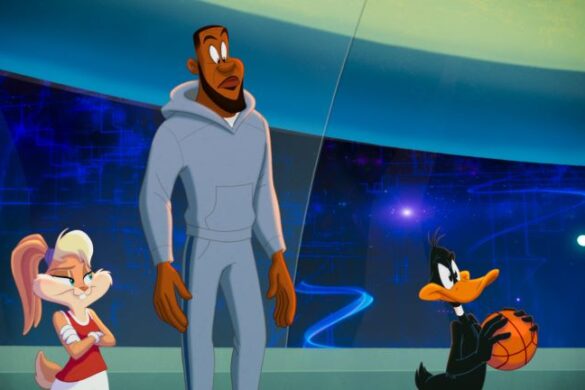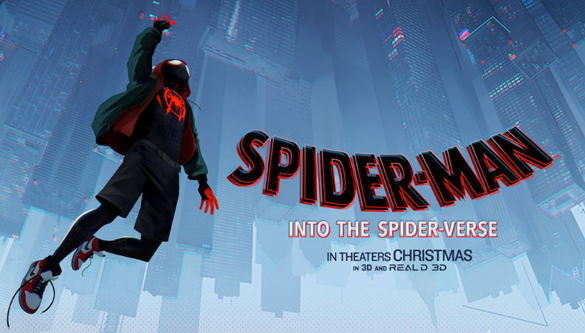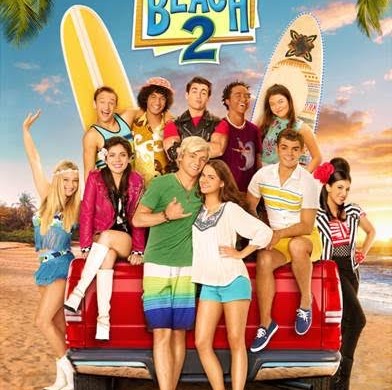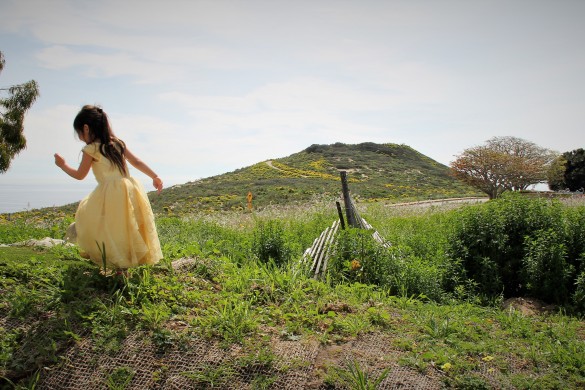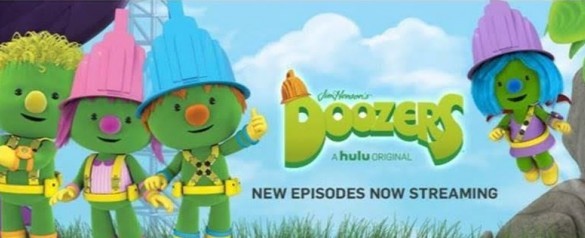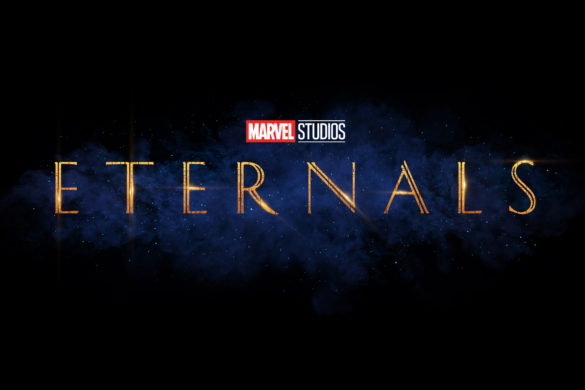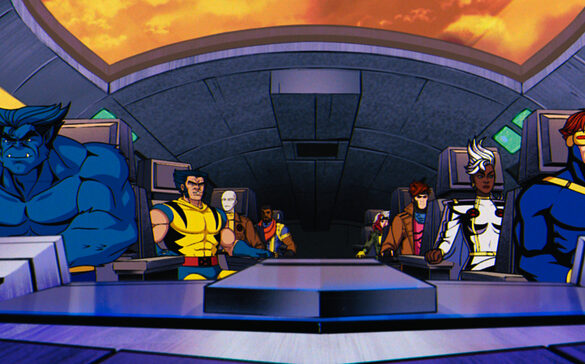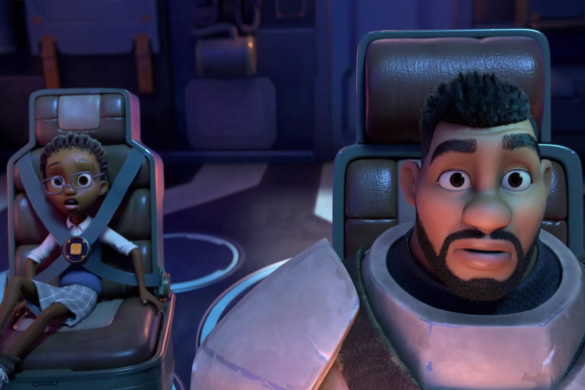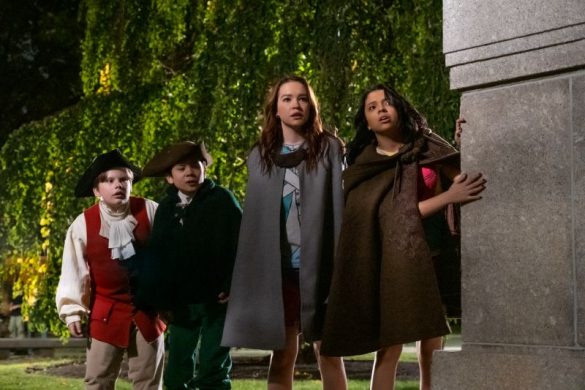We are continuing our journey to the “Guardians of the Galaxy Vol. 3,” by revisiting “Guardians of the Galaxy Vol. 2.” It’s a film that defies expectations on what a sequel should be by charting its own path to tell its own story without having to worry about how it fits in the MCU or how it leads to their inevitable crossover with the Avengers. As such, we get a more character-driven story that reflects upon the relationships between fathers and sons.
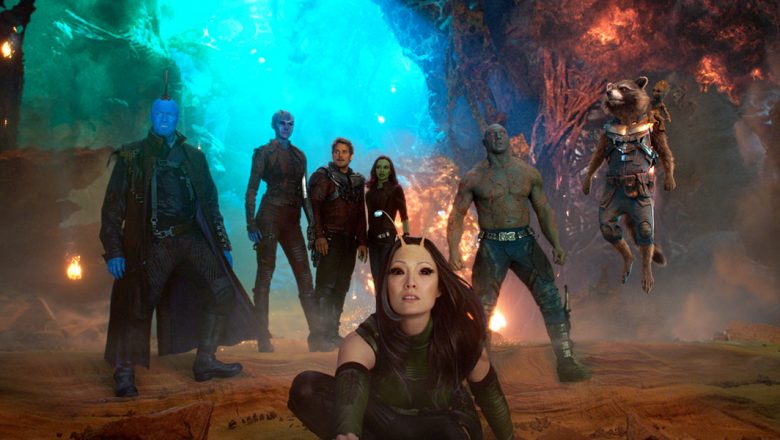
James Gunn’s Guardians of the Galaxy Vol. 2 is more of a filler installment of the MCU as it expands upon its themes of family and legacy through cosmic world-building and more profound character stories. Although drifting away from the MCU story meant that the director had the room to explore more of the character dynamics as they come to terms with their inner struggles and resolve some lingering trauma, the sequel lays out the groundwork for their next story without having to worry about how their actions would have an effect on the larger Infinity Saga. And that makes it one of the better filler chapters in the MCU.
One of the common criticisms of these filler films was that they needed more plot or narrative tissue to connect them to the Infinity Saga. At the same time, if it had those narrative tissues, it would have been more of a distraction. Such is the problem with a film that is part of a shared universe. By staying away from what the other MCU films are trying to set up, Gunn has the space to deliver a much more incredible story about these characters rather than have to worry about planting the seeds for that Avengers crossover fans have been waiting for.
So “Guardians of the Galaxy Vol. 2” evolves the theme of family by exploring each of their characters’ tumultuous relationships stricken with varying degrees of abandonment and betrayal. For Peter Quill (Chris Pratt), it’s the former. Described as an Angel by his mother, Ego (Kurt Russell) is a celestial figure who hopped from planet to planet, literally spreading his seed amongst those who would bare his offspring and sewing them directly into the planets he visited. However, his plan was far more nefarious than creating a family and horticulture. In fact, Ego never cared about having a family and had a plan for preserving his power. Contrast that to the cold opening where he was quite the charmer as he recites Looking Glass’ “Brandy, You’re a Fine Girl” to Peter’s mom. He’s enchanted by the woman who knew the words to every song that played on the radio. And had a hard time visiting her because it made it much harder to leave when he had to return to space. Though it was more of a selfish love and one that spoke to his name as justified giving her a tumor so that he would not have a reason to return to Earth again.
So “Guardians of the Galaxy Vol. 2” deals with troubling family revelations and how some of the individual members of the team confront them. In the first film, we saw how they bonded together over the respective traumas that forced them to become outcasts. Now, a dysfunctional family unit, our heroes are gun-for-hires, going from one planet to the next to resolve whatever issue afflicts them. They are hired by Ayesha (Elizabeth Debicki), a golden queen leader of the Sovereign race, to protect valuable batteries from an Abilisk, an inter-dimensional squid with fangs monster. While they are successful, the act of heroism could be more altruistic as they protected the batteries in exchange for Gamora’s (Zoe Saldana) estranged sister Nebula (Karen Gillan), who was caught attempting to steal the power source.
However, after Rocket (voice of Bradley Cooper) is caught stealing the batteries for themselves, they are attacked by the Sovereigns. Infighting between Peter and Rocket ensues, much to the anger of Gamora, who is tired of the egomaniacs fighting over who is best suited to pilot their ship. That’s when Ego appeared, and his rescue meant that he had finally found the son he had been looking for. Meanwhile, a disgraced Yondu (Michael Rooker) is looking to restore his reputation amongst the Ravengers by capturing the Guardians for Ayesha. A plan that doesn’t turn out so well when his sentimental feelings toward Peter start to surface. Soon, his fellow Ravengers throw a coup and punish Yondu for failing to pay his crew.
While the first “Guardians of the Galaxy” is about finding a new family, “Guardians of the Galaxy Vol.2” focuses on the relationships between fathers and sons. But, of course, the one between Quill and Ego is at the core. Still, the film also explores the dynamics between Quill and Yondu (Michael Rooker) and even the one between Yondu and Stakar Ogord (Sylvester Stallone). Once again, even though the film takes place away from Earth, he humanizes these characters through long-awaited reunions, acts of love, and guidance.
The reunion between Quill and Ego is long overdue. Until now, Quill never knew his father, and rescuing the Guardians from the Sovereign reinforces his adulation since his mother described him as an angel. Of course, Quill is cautious. The man could say what he wanted to hear. But the more Quill listens, the more he falls for the siren song of a man going through a mid-life crisis. Ego attempts to make up for the lost time by reminiscing about his mom or even teaching Quill how to harness his inherited celestial powers by playing a game of catch. It’s like the absent father who thinks he can just show up and everything will be okay when the reality is that nothing can make up for being an absentee father. Especially one who deliberately gave her mother a tumor and is the personification of an Ego.
Despite being a difficult father, Yondu’s first instincts are to protect Quill and those closest to him, even if that comes at a high cost. Stakar is a father figure to Yondu as his liberator. He had freed a young Yondu, who was sold into slavery by his parents and was given a spot amongst the Ravenger crew. So he learned everything there is to know about space piracy. However, the Ravengers lived by a certain code of not dealing with kids. Yondu broke that code when he abducted children and delivered them to Ego. And to put his mind at ease, Ego handsomely compensated Yondu. But the one kid Yondu didn’t deliver to Ego was Quill, with whom he built a relationship.
As such, Stakar banished Yondu from the Ravengers. He was exiled from the only family he knew. So his attempt to capture Quill and the rest of the Guardians wasn’t so much about collecting a reward as it was trying to protect them from the Sovergin. But, of course, he would never admit to such a thing. And we get to see more of that in some softer and more tender moments where Yondu teaches a younger Peter how to shoot blasters or when he teaches him a lesson about control. When Quill tells him about his powers and that he created a ball, Yondu is in disbelief, telling him that he doesn’t use his head to control his arrow. In these moments, we start to see how much of a father figure Yondu was to Peter, despite the fact that Yondu would threaten to eat him when he was a kid. That idea comes to light when Yondu sacrifices himself to save Peter.
In Yondu’s efforts to set things right, we have this moment where he connects with Rocket. During their escape from the Ravengers, Yondu lists how he and Rocket are alike. Both like to put on this facade that they are the meanest and baddest outlaws, and their selfishness often gets them into trouble more times than they can count. It’s a big climax for their character arc, especially when Yondu reveals that they both are uncertain about what to do when someone shows them a little bit of love. It reminds them of the hole in their heart created by their past traumas, and it scares them that someone could actually love them. As such, they realize what they’ve been pushing away for so long and will do anything to protect it. This makes Yondu’s sacrifice to save Quill much more impactful. And Rocket’s efforts to save Gamora from herself are more significant because he cannot bear to lose another family member.
Gunn guides us through Yondu’s rise and fall, and what he has to do to correct his past mistakes. He recognizes his atrocities and wants to atone for his abuse of Peter before making amends with his fellow Ravengers because he always saw Peter as the son he never had. As such, it makes the tragic self-sacrifice in his redemptive arc that much more believable. And Yondu’s death gives Peter a greater understanding of the Ravenger, who was much more of a father than Ego.
But Yondu and Peter aren’t the only familial relationship that’s repaired. “Guardians of the Galaxy Vol. 2” also sees estranged sisters Gamora (Zoe Saldana) and Nebula (Karen Gillian) making amends in a way they know how, through violence. But that’s the only way they’ve been able to communicate since Thanos constantly pitted them against each other, with Gamora coming out the winner and Nebula paying the price by being disfigured with cybernetic augmentations. Gamora was all Nebula had, which shows in the latter’s restraint to kill her after she had traveled across the galaxy just to fight her. It was one of the only times that Nebula had bested her sister. And the way they exchanged who had “won” shines a light on their sisterly dynamic, as violent as it is.
As one of the more emotional MCU entries, “Guardians of the Galaxy Vol. 2” is not without its humor. The sick sarcastic jabs and dirty jokes are a part of the DNA in almost all of Gunn’s films. So we have Drax (Dave Bautista) and the empathic alien Mantis (Pom Kleminteiff) poking fun at Peter for having feelings for Gamora. There isn’t so much of an attraction between the two. The relationship is more akin to big brother protecting his little sister – with Drax frequently making fun of Mantis for being small and frail but reminding her that her power is what can put Ego, who is in planet mode, to sleep.
The “Guardians of the Galaxy” films’ most significant strength is humanizing this wild bunch of misfits and making them a family. Something that we can connect with. The crass humor gives the Guardians of the Galaxy an edge over the rest of the MCU. We can laugh at how Gamora threatens Mantis not to use her powers on her else she ends up with a broken limb. Or when Drax asks about the size of Ego’s penis. Then there’s David Hasseloff’s cameo that fits right into Peter’s pop culture knowledge – and ties back into the fact that he is a man who lives outside of time. These jokes aren’t just simple ribbing. They somehow tie back to specific themes or character personalities. For example, when Nebula wants to get off the planet Ego, she calls out the Guardians for not being friends because all they do is fight. To which Drax corrects her by saying they’re family and they leave no one behind. It’s a tender moment that gets injected with some friendly ribbing “except maybe you” towards Neubla.
So Gunn continues to explore the themes of family but from a different angle. He weaves in redemptive arcs where characters become better versions of themselves than when they started with a killer soundtrack. Moreover, the sequel strips away from the usual bombastic, upping the stakes with bigger and badder action sequences we expect to see from blockbuster sequels and trades it in for a more character-driven film. And “Guardians of the Galaxy Vol. 2” is a much better film for it.

